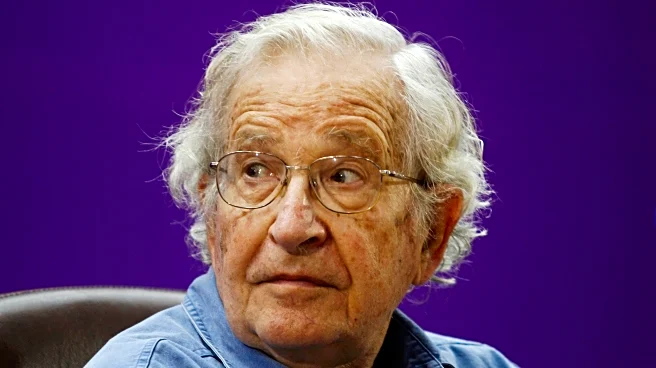What's Happening?
Vinted, a leading preloved fashion marketplace, is exploring a secondary share sale that could elevate its valuation to approximately €8 billion. This strategic move aims to allow early investors to partially
cash out while facilitating the company's next growth phase. Vinted, founded in Lithuania, has rapidly expanded its operations, with revenues expected to increase by 40% this year, reaching over €1 billion. The platform has broadened its offerings beyond apparel to include electronics, books, toys, and video games, driven by the cost-of-living and sustainability pressures. Vinted is investing in logistics and payment infrastructure to support its expansion, including testing cross-border trading between London and New York, indicating ambitions to penetrate the U.S. market.
Why It's Important?
Vinted's potential expansion into the U.S. market represents a significant shift in the resale industry, challenging established players like Poshmark and ThredUp. The company's growth underscores a broader consumer trend towards affordability, convenience, and sustainability, pressuring traditional retailers to adapt. As resale becomes mainstream, retailers must consider integrating circularity into their business models or risk losing sustainability-conscious consumers. Vinted's success could redefine global resale dynamics, offering a model for other platforms aiming to capture international markets.
What's Next?
Vinted's next steps involve formalizing the secondary share sale process, expected to begin in 2026, and further testing its cross-border trading capabilities. The company's entry into the U.S. market will require navigating consumer expectations, shipping costs, and regulatory challenges. Success in the U.S. could establish Vinted as the first global resale marketplace, potentially influencing other platforms and retailers to innovate and compete in the evolving resale landscape.
Beyond the Headlines
The rise of platforms like Vinted highlights ethical and cultural shifts towards sustainable consumption. As consumers increasingly prioritize environmental impact, businesses must balance profitability with sustainability. Vinted's model offers insights into how companies can leverage technology and logistics to meet these demands, potentially setting new industry standards for resale and circular economy practices.










